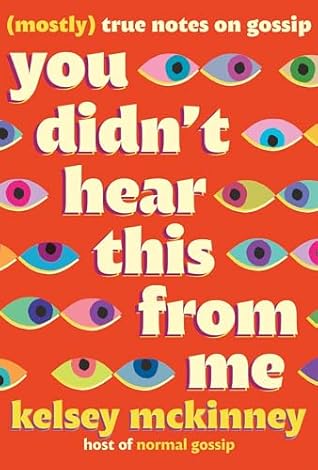More on this book
Community
Kindle Notes & Highlights
Read between
August 24 - August 24, 2025
The form of information sharing that we do as individuals today is how humans have done it basically forever. In order to survive as a species, you need to share what you know: to explain to one another where the berries are, where the deer are, and what time of year the river gets too high. This kind of information sharing is explicitly not gossip in that it is talk about objects, animals, and problems and not about other people. But we can assume that early humans would have needed to gossip to survive also: to decide, for example, who should go on a hunt, a group would need to discuss who
...more
A civilization imbues some people with power—judges, politicians, billionaires—and then supports that power through its existence. The reason that people are afraid of the Gossip Trap, in which social pressure holds more power than courts of law, isn’t because they are afraid of a regression of the human race. The people who are afraid of the Gossip Trap (or Cancel Culture, Woke Mobs, the Media, or whatever you want to call the kind of social pressure that can create change) are the ones who have reason to be: they have outsized power in our society, and they want to hold on to it.
But we learn to talk about ideas by talking about people. There’s a reason that the moral philosophical “Trolley Problem” involves imagining yourself as a train track operator deciding whether to do nothing and let five people die or take action and kill one person. The ideas are always connected to people because we are people.
Gossip is a morphing chameleon of a word whose meaning shifts in every conversation the way a kaleidoscope changes with every twist. In the world of secondhand, thirdhand, fourthhand stories, there is no veracity, no certainty. Everything must be taken with an entire box of salt.
But that is the truth about gossip: We want to separate ourselves from it at the same time we want to drown in it. We want the truth, all of it, not told slant, until suddenly we don’t.
Theory of mind is the ability to know that someone else thinks something. I know that Doja Cat thinks she knows this fact. Scientists have not been able to prove that any animal is capable of that complexity. Either an animal sees something and communicates it firsthand, or it does not.
creating a narrative out of situations we find confusing is a fundamental part of being a person.
Maybe it’s as simple as: not all stories are gossip, but the best ones feel like they could be. They invite a kind of collusion between the teller and the hearer, a secret shared that binds them together.
We gossip and we tell stories because that is how we each make sense of the world, with ourselves at the center reaching outward trying to connect with others, to prove to ourselves that we are real, that if anything is true, it is us.
Gossip and religion are braided together in our history as a species, so it makes sense that our belief systems have created rules around how we gossip and when.
Leaders were correctly drawing direct connections between gossip and their own potential downfalls and preemptively demonizing it to protect themselves. This seems to be the heart of the Evangelical church’s insistence that gossip be quashed at every level on every topic. If gossip always distorted the truth, then their crusade would make perfect sense. But anyone privy to gossip that matters knows that often the only truth that exists can be found in the gossip mills because it is often the only kind of power a marginalized or subjugated group can grab hold of.
Without all the infrastructure and profit and power seizing, gossip and religion are braided together throughout the course of our history. Both require us to believe. Perhaps that is the real identifying factor of whether something is gossip: Does it ask you to take a leap of faith, to trust the teller enough to believe a story you did not see with your own eyes and did not hear with your own ears? Gossip is always about a friend of a friend. It is always lightly or highly exaggerated. It always asks you to imagine a world different than the one you previously imagined, to consider a version
...more
Whisper networks are not meant to form any kind of accountability. Instead, where a vacuum of justice exists, a whisper network will emerge. It is meant to be a way to arm yourself, to protect yourself from expected harm.
As every teen girl knows well, you cannot gossip with just anyone. Gossip requires a kind of mutual vulnerability, an innate trust. When we gossip with someone, we bring them information in the hope that they will trust it, while knowing that they will judge us based on its quality and verifiability. Whisper networks, prosocial gossip, and gossiping in general about people directly connected to us enable us to create a web of information that can keep us safe. It can help us identify abusers, avoid people who are mean, and know which of our crushes doesn’t like us at all. Gossip can’t always
...more


